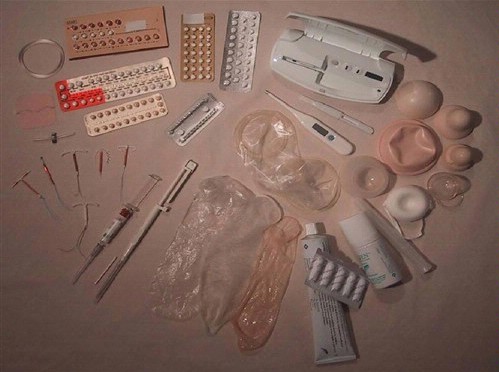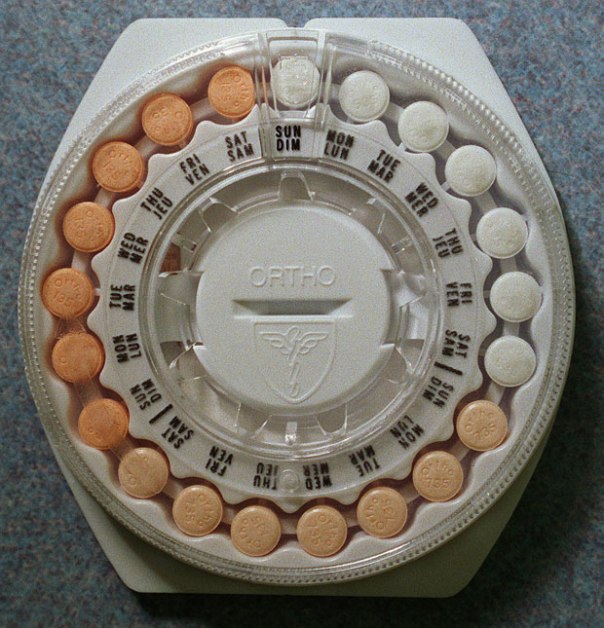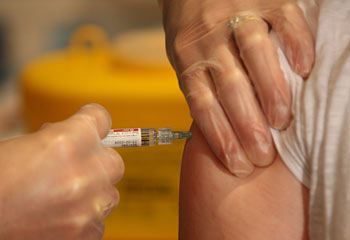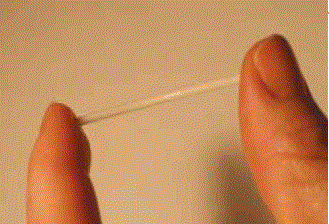Contraceptive Options – Know Before You Act! (Birth Control)
Options of Preventing Pregnancy
So you may wonder why I have such an odd “non-related” topic on my blog – but in reality, the likelihood is if you’re pregnant, that you’re not going to be getting your period, so I guess in a way, it IS a related matter, lol. What inspired me to write this little blog post (and yes it will be “little” because there is just way too much to cover) is that I was listening on the radio on the drive to work and one of the hosts mentioned that in Canada, they found that many women are actually unaware of the many contraceptive choices that are available to them. I would dare wager that the 2 most well-known contraceptive methods are the pill and condoms. I have done my best to do proper research, but feel free to correct me if mistakes are found as I am more than happy to learn, particularly from those with anecdotal experiences. I have yet to be with a girl who uses such contraception, particularly with a lack of knowledge about the pill and administering techniques other than by hearsay, so my knowledge may be iffy on that.
Suffice to say, while those two methods are well-known and used by many who choose not to have children at the moment (or never), they are not the only options available at this day in age. In this entry, I hope to gain some insight myself and also help open the world of contraceptive options to men and women. Where do men come into play? Well obviously contraceptive choices between couples or consenting adults is recommended when there is no intention to cause pregnancy. I should mention before I start this post that I’ll be concentrating on avoiding pregnancy in this posting, but should point out that most contraception forms do not protect against Sexually Transmitted Infections (STI) and Sexually Transmitted Diseases (STD).
Birth Control Pill (or “the pill”):
The basis of “the pill” is to prevent ovulation through a mixture of hormones, estrogen and progesterone. By suppressing ovulation, there is no egg released by the ovaries to to be fertilized by male sperm, therefore eliminating the risk of becoming pregnant. In addition to inhibiting the ovulation process, the pill also works by thickening the mucus around the cervix, reducing the likelihood that sperm is able to enter the uterus in the event that a female egg has already been released. Due to the combination of hormones present in the pill, even if fertilization does occur, the changes to the uterus lining much harder for the fertilized egg to attach to the uterus wall.
Most of “the pill” packages come in a 21 or 28 day-use cycle. The pill is administered orally (I should make that clear that “orally” means through the MOUTH) daily and at the same time every day. Users of the 21-day pack is taken 21 days continuously where the user will then stop for 7 days before starting the next 21-day pack. Users of the 28-day pack will continue to take all the pills in the package, but the last 7 pills of the cycle are actually hormone-less, usually called a placebo, which really has no effect on the body other than maintaining regularity and familiarity in maintaining the habit of taking the pill daily. If a single dose is missed (other than the placebo pills), then the chances of contraceptive protection drops considerably, so it is imperative that the pill be taken effectively. For women who start using “the pill” – it takes up to 7 days for it to take effect, therefore those who are sexually active within that 7-day window should continue to use alternate contraceptive methods such as a condom.
There are variants of “the pill” (such as progesterone-only), and your health-care professional will be able to give you the best advice on which suits you the best. There are of course benefits and risks for using “the pill” and making it important for you to consult a professional and to research what is in your best interest to use as contraception. For some women, the use of “the pill” is highly discouraged if they have certain medical conditions, so “the pill” is not recommended for everyone. There are also emergency contraceptives, such as “Plan B” for those “oopsies, we had unprotected sex” scenarios that prevent an embryo from attaching the the uterus wall after fertilization. “The pill” requires a prescription to acquire, but “Plan B” is available over-the-counter.
Contraceptive Patch
The contraceptive patch works similarly to “the pill” by delivering the combined hormones through the skin. A “bandage-like” adhesive is applied to the abdomen, buttocks, upper arm or upper torso. The scheduled usage of the product is like “the pill” and carries generally the same benefits and negative side effects, only that the method of which the hormones enter the body is different.

Contraceptive Patch
Intrauterine Devices
IUD’s are devices implanted into the uterus to prevent pregnancy by preventing sperm from fertilizing an egg. These “T-shaped” devices can be left in the uterus for several years and are usually composed from plastic and copper. Recent ‘enhancements’ to IUD’s also allow them to be loaded with a hormone-containing device which slowly release hormones over time to help alter the menstrual cycle and suppress conception. The IUD acts as a “physical barrier” which hinders the ability for sperm to meet with an egg and also due to a foreign object (the IUD) irritating the uterus lining, it prevents an embryo from implanting onto the uterus wall. This device is not suitable for those who have reactions to copper as it may cause increase menstrual cramps and flow. On the contrary, hormone-releasing variations of the IUD have been known to reduce menstrual flow and regulate periods. Nevertheless IUD’s have the potential of being pushed out of the vagina due to natural contractions. IUD’s are a great contraceptive choice if a user wants to be able to quickly become fertile again (assuming one was fertile in the first place). IUD’s should be implanted with the skills of an expert practitioner.

Intrauterine Device
Vaginal Ring
The vaginal ring works similarly to “the pill” by delivering the combined hormones through the vagina. A “ring-like” device is inserted into the vaginal which stops ovulation, thickens cervical mucus and creates a barrier to prevent sperm from fertilizing an egg. The scheduled usage of the product is like “the pill” and carries generally the same benefits and negative side effects, only that the method of which the hormones enter the body is different. It is possible for the ring to fall out and may cause vaginal irritation. If the ring is left outside the body for more than 3 hours, pregnancy once against becomes a risk and requires a 7-day window to become effective again. The vaginal ring can be inserted/removed without professional intervention.

Vaginal Ring
Contraceptive Injections
Contraceptive injections containing synthetic hormones can be absorbed into the body via intramuscular injection. The hormones contained within prevent ovulation, thickens the mucus in the cervix and also makes the womb lining thinner to prevent an embryo from attaching to the uterus wall. Initial injections prevented pregnancy from 8 to 12 weeks, however, newer shots are said to last up to several months. Unfortunately, because hormones are injected directly into the body, they may stay resident in the body for up to 2 years, therefore resuming fertility is not as fast as other methods. Also, there have been riskier “aftermaths” even after discontinued use of contraceptive injections. With the use of contraceptive injections, menstrual periods completely stop (other than spot-bleeding) and do not become regular until a year or more of discontinued use of the product.
Implants
Capsules which release fertility-inhibiting hormones were implanted into a woman’s arm which could prevent pregnancy for up to 5 years. It was highly effective, however, side-effects were not properly communicated to customers which resulted in several class-action lawsuits. I’m not going to talk a lot about this method since it has been pulled off the shelves in North America.
Diaphragm
A diaphragm is the “female equivalent” of a condom, a barrier contraceptive method. A diaphragm is a latex or silicon device shaped in a dome which is inserted into the vagina to “block off” the contact of sperm and a released egg. Just like a condom, a diaphragm is inserted prior to sexual intercourse, however, unlike a condom, the device should be left in the vagina for another 6 to 8 hours (although debated due to lack of evidence/conclusion) from the last male ejaculation within the vagina. It is common that spermicide be applied to the rim and/or dome of the diaphragm prior to insertion. Diaphragms can be reused as long as they are properly cleansed and can be reused immediately if required. Care should be taken to avoid contact with oil, whether it is oil-based vaginal medication of lube as it causes the deterioration of the diaphragm. Depending on the material used to make the diaphragm, it may be used from anywhere between 1 to 10 years.
A fitting appointment is recommended with your health-care professional to assist in finding a diaphragm that fits each woman’s size and needs. Whether a diaphragm is too large or too small may affect the woman’s health and may increase the risk of pregnancy if a seal is not properly formed. The diaphragm covers the cervix and physically prevents sperm from entering the uterus. It should be noted that like tampons, diaphragms are susceptible to causing TSS (Toxic Shock Syndrome) when it is worn for periods of greater than 24 hours. A diaphragm does not affect future fertility opportunity and does not affect hormones or regular menstrual cycle in any way.

Diaphragm

Diaphragm
Closing
I hope this helps shed some light on the various birth-control options for everyone. For those of us who are in relationships, please be reminded that birth-control is not a one-sided decision and it’s best made with both parties involved. If you are having sex outside of a monogamous relationship, then it’s a totally different story. While it is rightful and legal for a woman to make a sole decision on birth-control methods, please do be considerate and include or at least consult with her partner on his/her feelings and objectives.
Your choice of birth-control may have irreversible or long-term effects, thus, it is advisable to also seek the opinion of your health-care professional. Also, some medical conditions you may have may exempt you from the opportunity to safely utilize some of these methods. There are many risks and rewards to using the above options and I have hardly even touched on the advantages and side-effects of the choices. It is also in your best interest to do prior research and then consult your medical specialist to help make the best decision, fitting to your scenario.
Posted on February 15, 2011, in Periodtastic, Thumbs Up Reads and tagged Birth Control, Blog, Condoms, Contraception, Contraceptive, Contraceptive Injections, Contraceptive Patch, Diaphragm, Education, Educational, Ejaculation, Girls, Health, Implants, Intrauterine Devices, IUD, Life, Menstruation, Periods, Plan B, Pregnancy, Relationship, Sex, Sperm, Spermicide, STD, STI, The Pill, Thoughts, Toxic Shock Syndrome, TSS, Unprotected Sex, Vaginal Ring, Women, Women's Health. Bookmark the permalink. 5 Comments.
























Well at least we kno bebe won’t hv to be worried abt getting pregnant with u knowing so much abt it xDD … well I meant ‘unwanted’ pregnancies. Wait, y wuld she even need to c a doctor when she can juz ask u abt it? kakaka!
Wuld u b mad if bebe took birth control w/o telling u? Did u mk this post coz I sent u those condoms? HAHA. Was I an “inspiration”? If I am… I better get paid for this 😆 C’ing those needles makes me want to puke n’ cry… I hate needles!
I think tht when they invented the Plan B thingy… tht they were just implying to ppl tht they can now hv unprotected sex n’ not hv to worry abt havin’ a baby nemore… haiz… just encouraging ‘bad behaviour’!!
Well if she’s taking birth control NOW, she has no need to tell me… but obviously when we get ‘closer’ and engage in “activities”, I’d think it’d be nice to know something like that… and plus, I’d absolutely bring the topic up since we need to decide whether at the time, we want to just do it for pleasure or for having kids. If we’re not ready for kids, then of course we will need to discuss how we will avoid pregnancy. I know it’s an “uncomfortable subject” – but a necessary one of course. It’s not just a ‘small matter’ – it is a matter of literally “life and death” – because there is a potential for creating an unwanted life if we’re not ready. At the same time, we should still be able to enjoy pleasure while not having to worry. When the time comes, we will decide what works best for us.
Right now, the choice of birth control if she’s using it is totally hers, we’re not that close where I can yet dictate/have a say in what she uses. If she uses it to regulate her period, it’s not that big of a deal. But of course if we were like.. trying to have a child and then she never told me she’s actually still using birth control, I’d be kinda angry because then it would kind of render the whole idea of TRYING to get pregnant useless, haha. Kinda like those TVB dramas where the guy is trying to get the girl pregnant but the girl is secretly taking bc… haha… that’s just downright wrong, it should be a responsible and logical decision made together!
But more importantly, I think as we progress into the relationship in regards to any kissing or sexual contact, we have to agree to get all our correct immunizations. I’m not sure if there was enforcement for immunizations for her when she came to school here, I would assume so. I know that as I was going through school, they have a requirement that you get your typical shots for like diphtheria, pertussis, tetanus, polio, haemophilus influenzae type b (Hib), measles, mumps and rubella – and since I went to school here, I have all those shots already. Also, things like hepatitis A/B, meningococcal disease, pneumococcal disease and human papillomavirus would be good, I have my Hep B shot from grade 7 I think.. it was the worst experience ever, lol.. I think you have to take like 2-3 over half a year or something like that. I hate needles anyways 😛 It’s really about protecting EACH OTHER anyways… I do really love her, and particularly for the sake of our health it is important.
I didn’t make this post because of “your inspiration” – sorry babe, haha. I made it because I was thinking about the ‘future’ with bebe and how this discussion would eventually come up, whether comfortable or not it is REALITY.
And yes, in my eyes Plan B is just encouraging unprotected and irresponsible sex… but it’s going to happen whether we like it or not – at least this prevents a kid from being born into an unloving family.
Yesh, safety when it cms to intimate contact, even simple things like sharing food or kissing is important, so it is very honourable for u to be considerate of each other n’ to ensure tht u dun catch nethg from each other. Even more so coz u both cm from Asian-countries, the risk is generally higher coz of the viruses tht u find in Asian countries, n’ even more fatal ones in south-east Asia, so y tk the risk rite? It’s in the best interest for u both!
Dun forget sm vaccinations require a re-administration after so many years tho.. altho I think the more ‘dangerous’ diseases r all life-time vaccinations. Bebe n’ u cm from ‘high risk’ hepatitis countries, China/HK and Malaysia – even b4 I moved here I got my shots.. think it was Twinrix.. it covers both A/B form, which is more common n’ easily transmittable.
To be honest, y this is so common in Asia is coz Chinese ppl hv this habit of being too ‘open’ abt sharing food, like when they eat with their chopsticks then use their own to give sm1 else food. After the SARS breakout, ppl r a lot more careful now n’ use “public chopsticks” when splitting/giving sm1 food. The thing abt eating in Asia is tht so many ppl hv this issue, tht u wuld not even kno if u caught it or where u caught it from. Best tht once u n’ bebe plan on going farther tht both of u shuld absolutely go to doctor n’ get the shot. It used to be 6 to 12 months for it to tk effect, now they hv new ones tht works in like 4 wks. Lots of ppl who r born in Asia already have the antibodies from it n’ will hv developed immunity coz Asia is so dirty from viruses/bacteria, but it’s still not worth tk’ing the risk.
So mk sure u stay off each other until u both get protected xDD
counterconception has sideeffects some birth control pill cause imuno disentagration
and a myrad of a plethera of other health problems if a person gos this way its like taking a fully loaded ak47 and blowing your brains out on the floor besides babies are a blessing not a curse acoring to Gen49:25 besides fullnesting helps with the bills please ask HNR block about the exteneded famly tax credit, and you may wna look into govenment grants
more info latter TTYL
Pingback: Is it safe to use tampons while 4 months pregnant? | Signs of being Pregnant